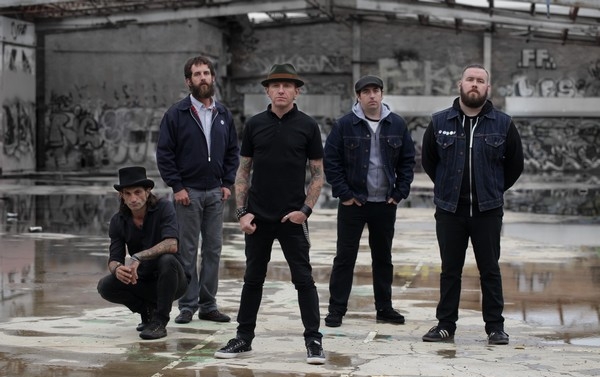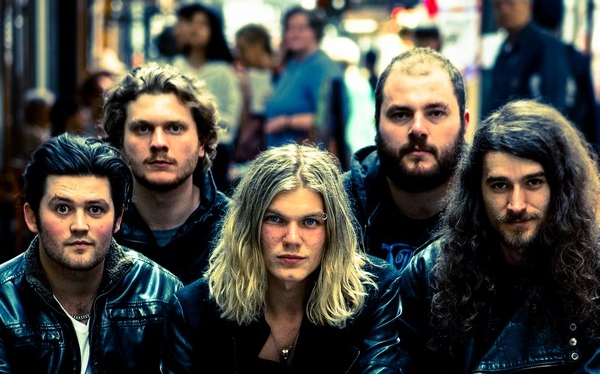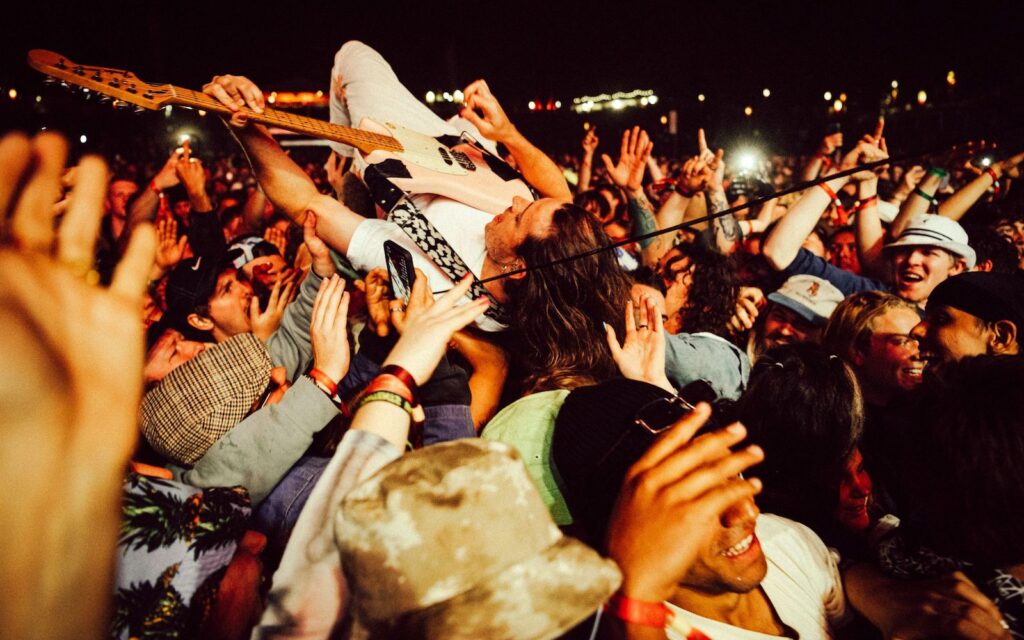“I was born in Scotland, I came out here very young but have been back and forward throughout my life. Born in Scotland from an Irish background, so there was my exposure to all of the good stuff, the music, the humour and the characters,” explains Rumjack’s frontman Frankie McLaughlin. “I have only just realised after talking to a mate yesterday how many family members and people will make cameo appearances in [the lyrics to] our songs.”
The Rumjacks stay as true as possible to the Celtic punk sound and therefore McLaughlin’s voice is filled with awe and respect when talking about Irish band The Pogues, widely regarded as the most important exponent of the genre. As is inherent with most Celts, McLaughlin tells one hell of a yarn, so he sets up the topic of The Pogues by going right back to when he was a wee chap new to this country.
“I have been into all kinds of music and performed all sorts, but I came here when I was very young, I found this sort of odd resistance to anybody who was different and found it hard when I came to school here,” he says. “I looked the same as the other kids but didn’t sound the same and because of this I was singled out for a bit of ‘treatment’… My name seemed ridiculous when the teachers couldn’t even pronounce it,” he reflects sadly. “But as I grew older and found bands like The Pogues, who came along at a time when I was looking for my own thing, something with a bit more clout. It took what I was hearing at home put with rougher new sound to truly awaken me in what I wanted to do in music – ‘We’ve got our own thing, too’,” he concludes.
Despite McLaughlin establishing a strong identity as an expat in Australia, this sunburnt country still had one more go at offending McLaughlin’s culture and it became the subject matter of The Rumjack’s most successful song to date, An Irish Pub Song. “I had a version of that song in a recording I made for myself and it actually sprung from an Irish friend of mine that said to me, ‘Listen, there’s this great new place opening nearby and there opening night is tomorrow night, let’s go an check it out’,” he reflects. “They’d advertised that they had taken a real pub from Dublin that had closed and they had carefully dismantled it and shipped it here to Sydney to be reconstructed. We went along and first of all we were refused entry to do with dress code so that soured the relationship from the start but it was a dodgy place, turned into a nightmarish neon wash nightclub most nights,” he says. McLaughlin now recounts the experience that made for most of lyrical content in the song: “I was in there with some labourers and some contractors, we had been rained off a job – they were all Irish. And there were a coupe of old people sitting in there having their lunch and they loved that we were singing the old Irish pub songs. It was rainy day, the fire was going, there were warm ales and then we were warned by the staff, ‘Stop or you will be tossed out’ and eventually we were given the boot and I thought, ‘Right that’s magic, they’re kicking Irishman out of an Irish pub for being Irish’,” he laughs.
BY DAN WATT







